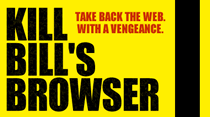[« We get comments....] [Time to consider shutting down the blog.... »]
11/28/2005: Thought for the Day:
Here's what we do know already, without a congressional inquiry: Members of the Bush Administration were dishonest with the public and with Congress about prewar intelligence. We've known this for some time—see, for example, the comprehensive and damning story Barton Gellman and Walter Pincus wrote in the Washington Post in August 2003 ("Depiction of Threat Outgrew Supporting Evidence"). Over the past two years, several incidents of executive-branch dishonesty in the run-up to the war have turned into subscandals of their own: the aluminum tubes that Iraq used for missiles and not gas centrifuges, the yellowcake uranium that Saddam didn't try to buy from Niger, the mobile biological warfare laboratories that turned out to be hydrogen generators for balloons, the al-Qaida chemical warfare training that was based on a false confession, the meeting with Mohamed Atta that didn't happen in Prague.
If you examine these and other pillars of the administration's case for invading Iraq, a clear pattern emerges. Bush officials first put clear pressure on the intelligence community to support their assumptions that Saddam was developing WMD and cooperating with al-Qaida. Nonetheless, significant contrary evidence emerged. Bush hawks then overlooked, suppressed, or willfully ignored whatever cut against their views. In public, they depicted unsettled questions as dead certainties. Then, when they were caught out and proven wrong, they resisted the obvious and refused to correct the record. Finally, when their positions became utterly untenable, they claimed that they were misinformed or not told. Call this behavior what you will, but you can't describe it as either "honest" or "truthful."
--Jacob Weisberg
Len on 11.28.05 @ 06:44 AM CST












